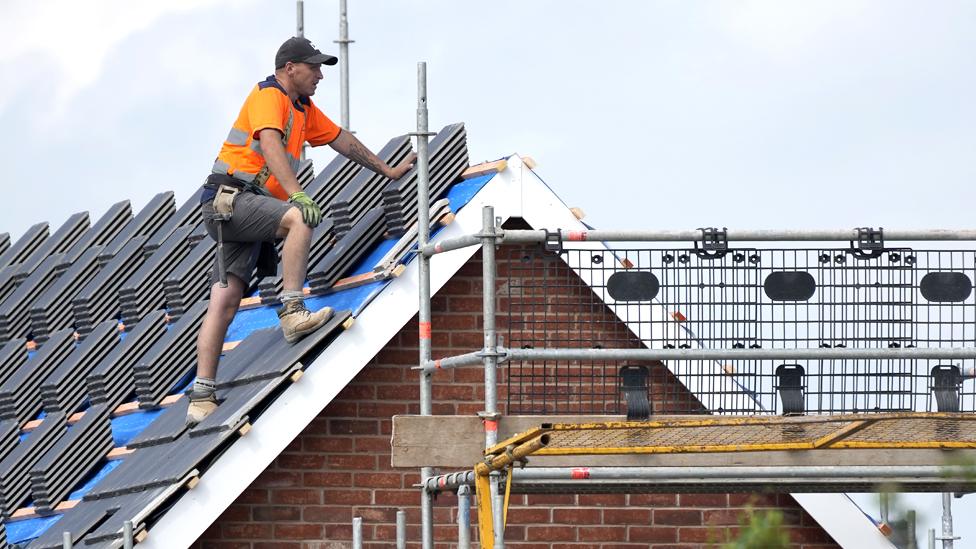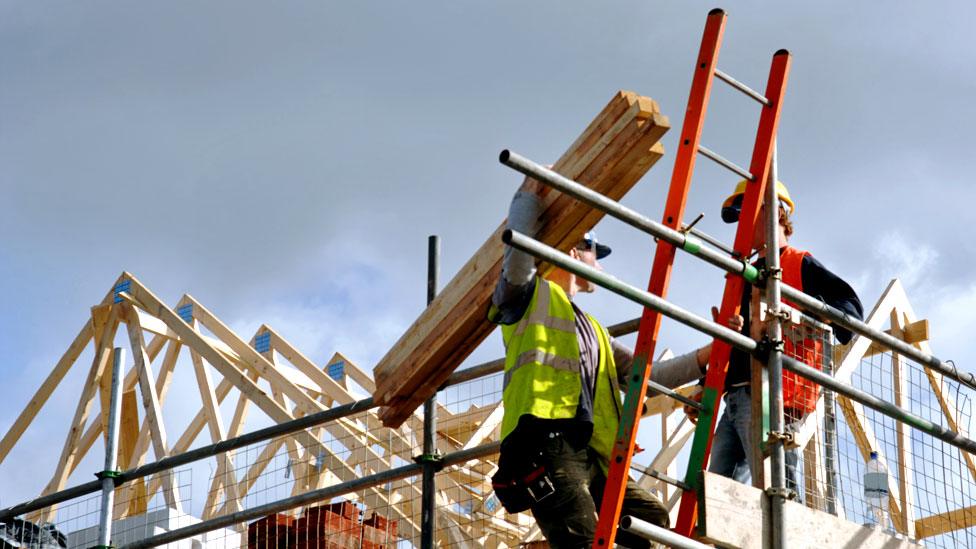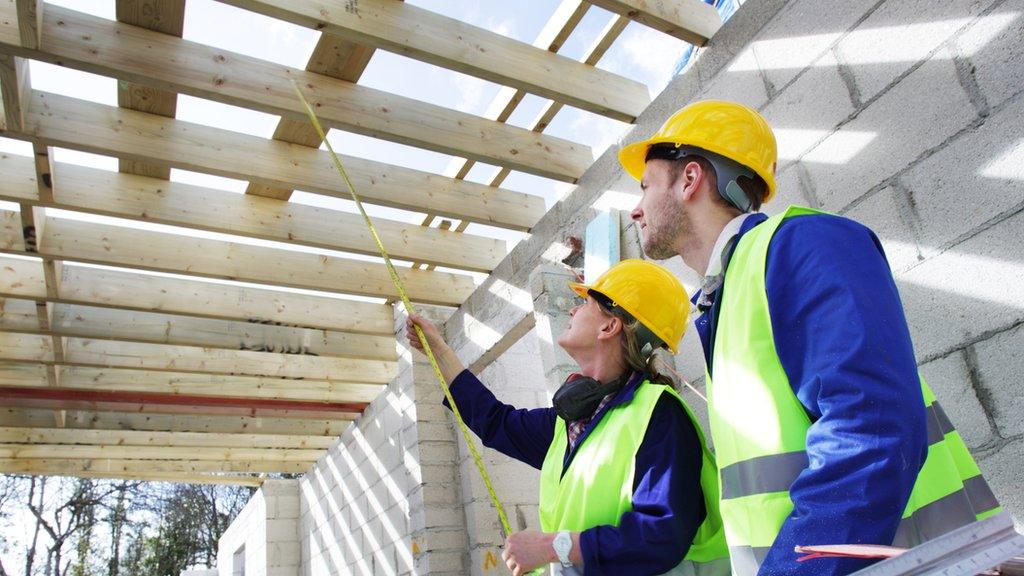Michael Gove relaxes planning rules to create more homes in city centres
- Published
- comments

Michael Gove is to relax planning rules in England in an effort to create more homes in "the hearts of our cities".
The levelling up secretary says he wants to make it easier to convert empty retail premises and betting shops into flats and houses.
But critics say such conversions are often poor quality.
It comes as Rishi Sunak insists his party will meet its commitment to building a million homes before the next election, expected in 2024.
A report by the Commons housing committee earlier this month found, external that while ministers are on track to deliver its one million homes target they are not expected to meet their other commitment to deliver 300,000 new homes every year by the mid-2020s.
'Brass neck'
Hitting that figure became harder after the government watered down housing targets for local councils following a fierce backlash from its own MPs, many of them in rural constituencies.
The prime minister said his government would not be "concreting over the countryside" adding: "Our plan is to build the right homes where there is the most need and where there is local support, in the heart of Britain's great cities."
Lisa Nandy, Labour's shadow housing secretary, said: "It takes some serious brass neck for the Tories to make yet more promises when the housing crisis has gone from bad to worse on their watch."
In a speech in central London on Monday, Mr Gove said the government would "unequivocally, unapologetically and intensively concentrating our biggest efforts in the hearts of our cities".
Speaking to BBC Radio 4's Today programme on Tuesday, he said building denser cities would create more "walkable, liveable communities" that cut commuting times to work.
He added that the creation of more "buzzy urban areas" would also help the UK economy.
As part of his plan to build more homes he said he wanted to make it easier to convert shops, takeaways and betting shops into homes.
Some commercial properties can already be converted into homes without planning permission. Under laws known as "permitted development rights", more than 10,000 properties - such as former offices - were turned into homes, external in 2021-2022.
'Super squad'
The Local Government Association has warned that offices, shops and barns are not always suitable for housing, and could result in the creation of poor quality homes.
Anthony Browne: Cambridge is "already growing incredibly rapidly" but a lack of water means expansion plans are "undeliverable”.
Mr Gove also wants to ease rules on building extensions to commercial buildings and repurposing agricultural buildings.
In order to speed up big developments, the government will invest £24m to train up planning authorities. Half of the funding is newly-allocated, while the other half will come from the department's existing budget.
There will also be £13.5m for what it calls a "super squad" of planners to unblock certain projects - a development in Cambridge will be the team's first task. Developers will be asked to pay higher fees to fund improvements to the planning system.
However, in an early sign that Mr Gove's plans may attract criticism from the government's own backbenchers, Conservative MP for South Cambridgeshire Anthony Browne has tweeted:, external "I will do everything I can to stop the government's nonsense plans to impose mass housebuilding on Cambridge, where all major developments are now blocked by the Environment Agency because we have quite literally run out of water."
Asked about the criticism, Mr Sunak said: "No one is doing mass house building in Cambridge, this is about adding a new urban quarter to Cambridge."
He added that developments would be done "in dialogue with local communities" and that Westminster should not "ride roughshod" over their views.
Labour's Lisa Nandy claims the government is "at war with itself" over housing
The issue of building more homes has been a tricky one for the government. While there is great demand for housing, particularly among younger voters struggling to get on the property ladder, new housing developments have proved unpopular in Conservative heartlands.
'Tough decisions'
The National Housing Federation, which represents housing associations, said Mr Gove's policies were "a positive start" but "nowhere near the scale or ambition that is needed".
The body's director of public impact, Rhys Moore, said the changes to the planning process were "relatively piecemeal" and called for more investment in social housing - homes available for lower rents.
Polly Neate, head of housing charity Shelter, praised Mr Gove for being a minister who is "not afraid to build" but warned that plans to convert takeaways into homes risked creating "poor quality, unsafe homes".
In May, Labour leader Sir Keir Starmer said his party would give English councils more powers to build on green belt land, but added that new developments would not be permitted if they affected "the beauty of our countryside".
He said he would take "tough decisions" and "back the builders, not the blockers".
Labour has also said it would reintroduce local housing targets and change the planning system to make it easier to build on brownfield sites.
- Published6 December 2022

- Published2 August 2024
